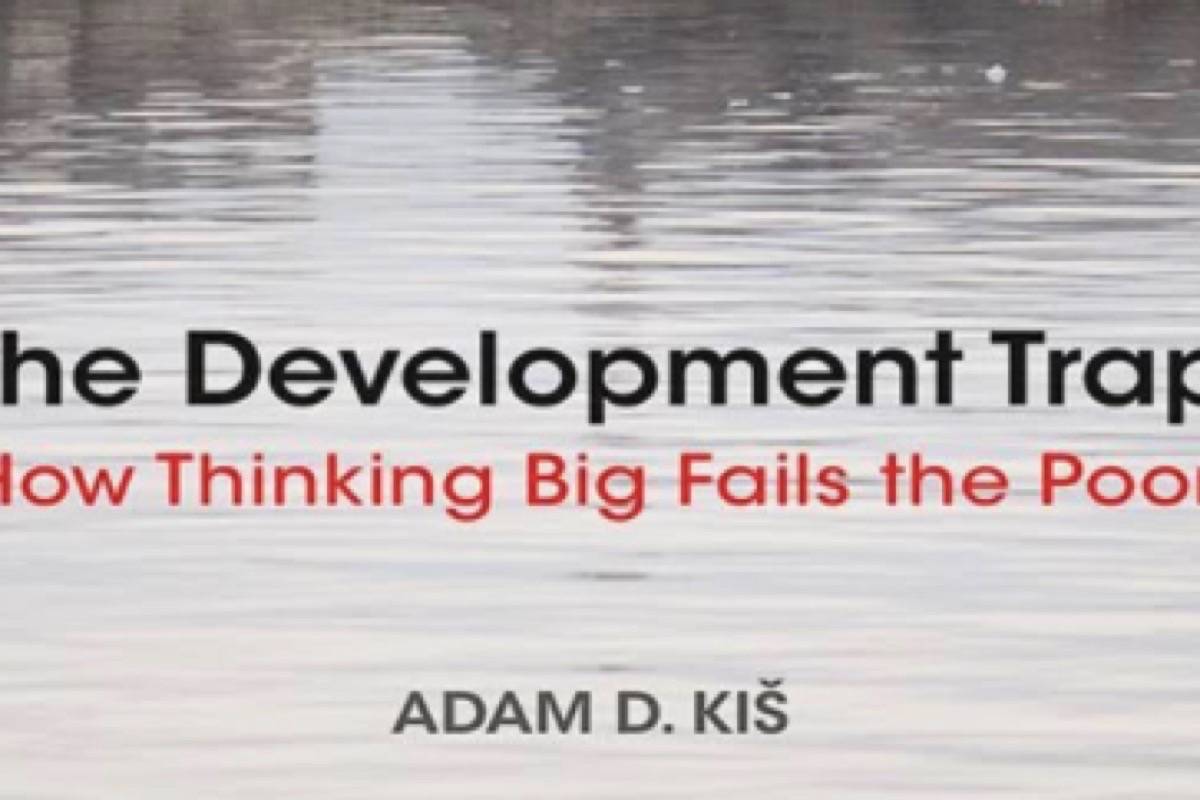A Burman University professor recently published a book that looks to change the way people look at international development.
Adam Kiš, assistant professor of anthropology at Burman University, recently published his book, The Development Trap: How Thinking Big Fails the Poor, which looks to take a middle ground between the cynics and optimists in international development.
The book is divided into two sections, which represent both points of view.
“In international development, you typically have two extreme views,” said Adam Kiš. “You have cheerleaders who believe that poverty eradication is just over the horizon and that we just need to infuse more money in a last push to wipe out poverty on the earth.
“Then you have the cynics who think it is all a waste of time. It is all neo-colonialism.”
With these two views in mind, Kiš tries to to answer the question of ‘Are we doing anything worthwhile?’
By acknowledging the criticisms of development and then analyzing solutions, Kiš hopes to find an answer that is appealing to both cynics and optimists.
“I’m afraid that people are going to find out that poverty is undefeatable and people are going to become jaded and stop helping altogether,” he said. “We need to continue to help but in different ways. I don’t want to see people become jaded.
“It would be harmful for fundraising efforts and also in making real progress.”
One of the solutions he proposes is creating opportunities for people in the developing world and returning agencies to their lives. He also said it is important that decisions and projects are developed with the beneficiaries in mind.
“Let the beneficiaries decide if it is something they want to be involved with,” he said. “What I see happening in a lot of the developing world is people without opportunities. They have the ingenuity, they have the energy, they have the insight and they even have the education but they don’t have opportunities to use those.
“The key is to create opportunities and then measure our success by how many opportunities were created rather than how many people were fed or how many people were clothed.”
While Kiš acknowledged feeding and clothing people is important, the numbers presented by developmental groups do not always cause, “Real and lasting change.”
Kiš’, who worked in development in Africa and Asia prior to coming to Burman three years ago, said he began writing his book 10 years ago — with the bulk of the work being completed in the last two years.
“At Burman University, I have been given research time and funding. These kind of supports are what are needed to write a book,” he said.
He wrote the book not only for academics, but for the everyday person as well.
“I want development practitioners to read it and perhaps change the way they do their work; I want development scholars to read it; and I also want everyday people to read it because they are the ones who are ultimately supporting these efforts either through direct donations to charitable organizations or through their taxes,” he said.
Ultimately, Kiš hopes his book can help change the way people think about international development.
“Just because you can’t save the world or eradicate poverty completely, it doesn’t mean it is not worthwhile. I hope people will realize they need to focus at this at a more individual level rather than the global view.
“It is good to have over-arching goals but the real impact is made at the individual, household and community levels.”
The Development Trap: How Thinking Big Fails the Poor is available for purchase on Amazon.



